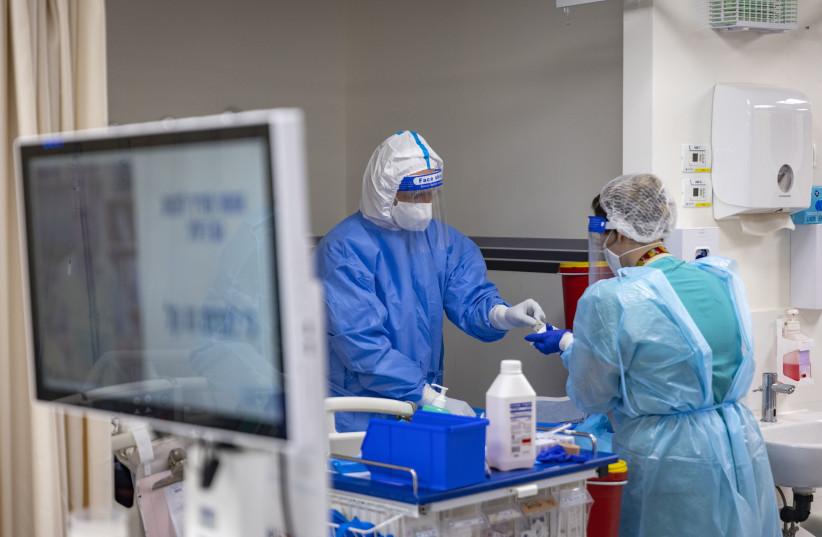The fourth dose of the coronavirus vaccine protects those aged 60 and over more than three times as much against severe illness and twice as much against infection compared to those who received only three doses, according to initial findings released by the Health Ministry on Sunday.
The comparison was done between about 400,000 people who received the fourth dose and about 600,000 people who received the third dose at least four months ago.
Last week, preliminary results of a study conducted by the Sheba Medical Center revealed that although the fourth dose of the vaccine increased the level of antibodies in the blood, it did not seem to offer protection against infection by the Omicron variant.
In an interview with KAN Reshet Bet radio, Prof. Ran Balicer, who heads the committee of experts advising the Health Ministry on COVID, stressed that the Green Pass is not effective when it comes to Omicron as it is meant to create spaces safe from infection and it is unable to do so with the latest variant. The Green Pass regulations are set to expire at the end of this month and the government is reportedly planning not to renew them.
Balicer recommended that public places be allowed to implement a new sort of Green Pass requiring both vaccination and antigen tests, especially places where high-risk people are located such as old-age homes and hospitals.

Balicer added that one of the most important challenges facing Israel now is hospitalizations as it is still unclear how high serious cases will go.
As of Sunday, over 732 patients were hospitalized in severe condition, with medical staff struggling to handle the load as many medical workers are in quarantine, according to Ynet.
Additionally, on Sunday, Hans Kluge, the WHO Europe director, told AFP that Omicron could bring an end to the pandemic in Europe, although he still urged caution. “There is a lot of talk about endemic but endemic means... that it is possible to predict what’s going to happen. This virus has surprised (us) more than once so we have to be very careful.”
“It’s plausible that the region is moving towards a kind of pandemic endgame,” he told AFP, adding that the variant could infect 60% of Europeans by March. Kluge theorized that the virus could rebound towards the end of the year, but would not necessarily mean a return of the pandemic.
The virus continued to spread through the Knesset on Saturday night and Sunday, as Blue and White MK Ruth Wasserman Lande tested positive on Saturday night through an official PCR test after testing herself with an antigen test.
The Knesset MK wrote on Twitter that she “will continue to work from home as long [she] can.”
United Torah Judaism (UTJ) MK Ya’acov Litzman tested positive for the coronavirus for a second time on Sunday as well. Litzman is feeling well and following Health Ministry guidelines.
Yesh Atid MK Nira Shpak tested positive on Sunday. A worker in the Protocol Department of the Knesset was also infected. They were both last in the Knesset building on Wednesday.
Two members of the Knesset Guard and one worker in the Ceremonies Department were found to be infected on Sunday.
